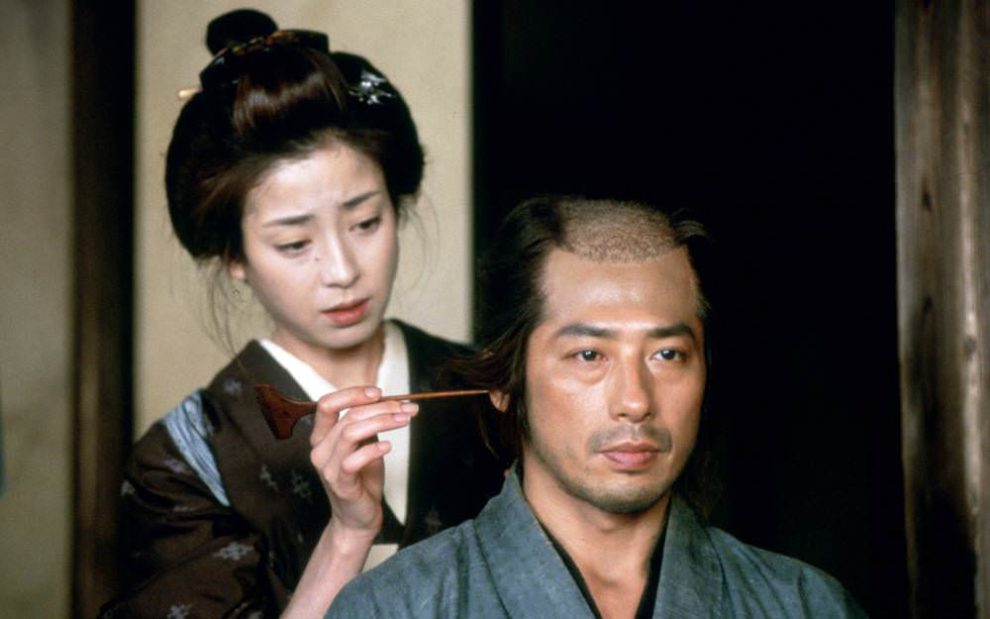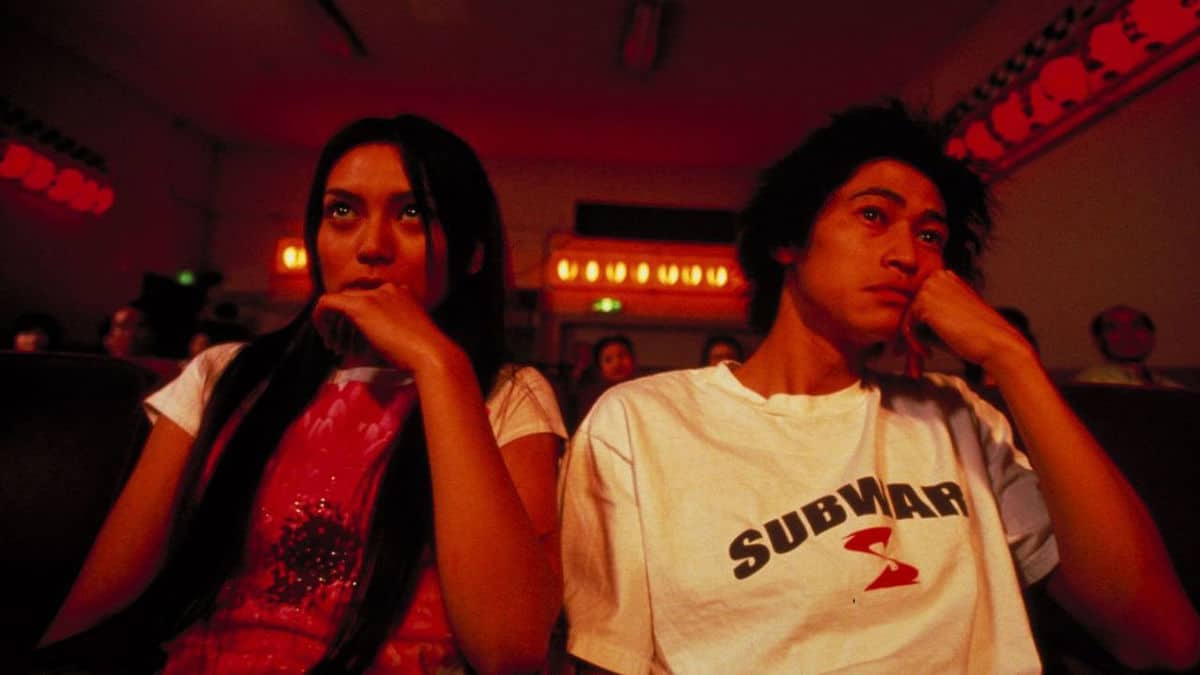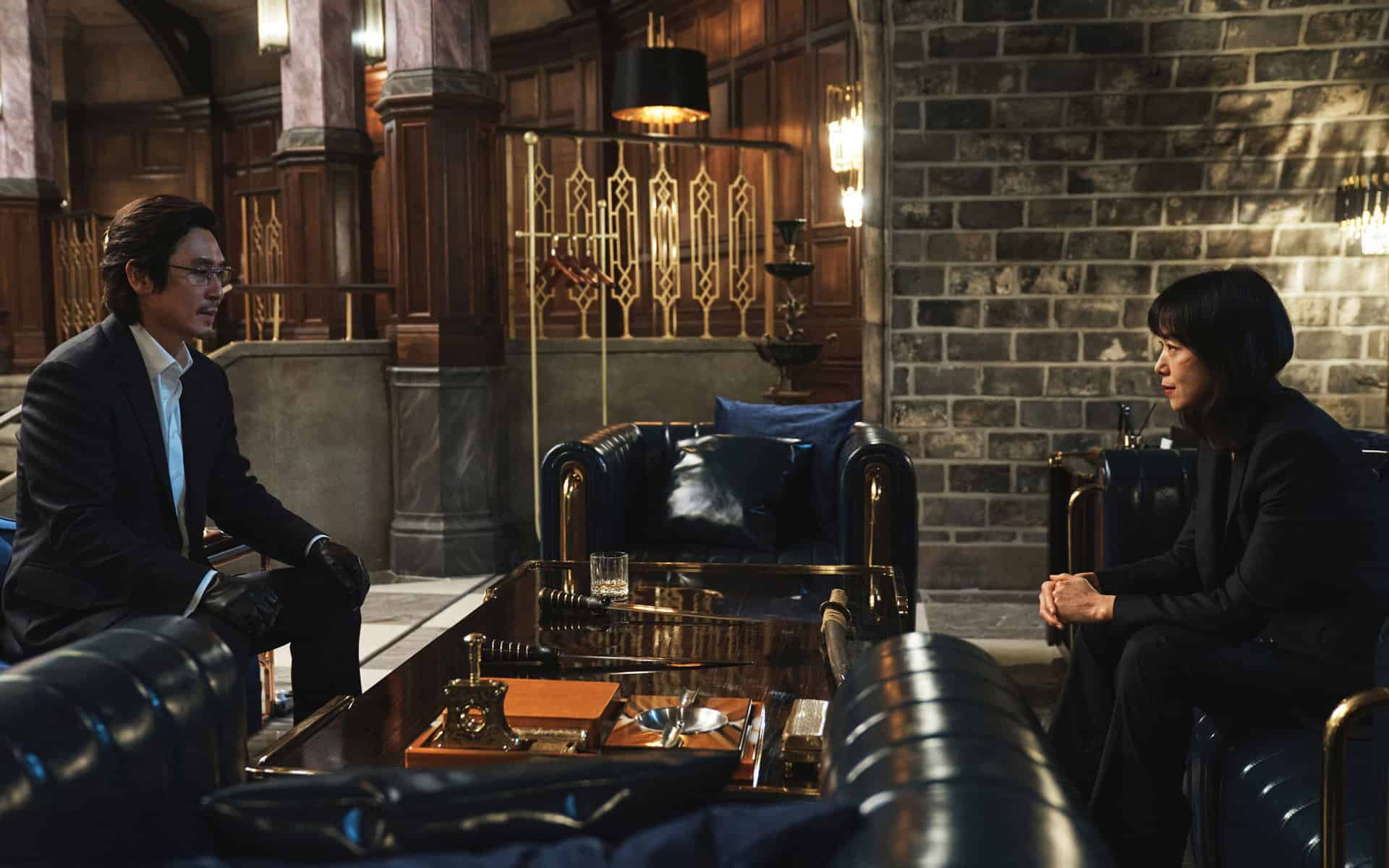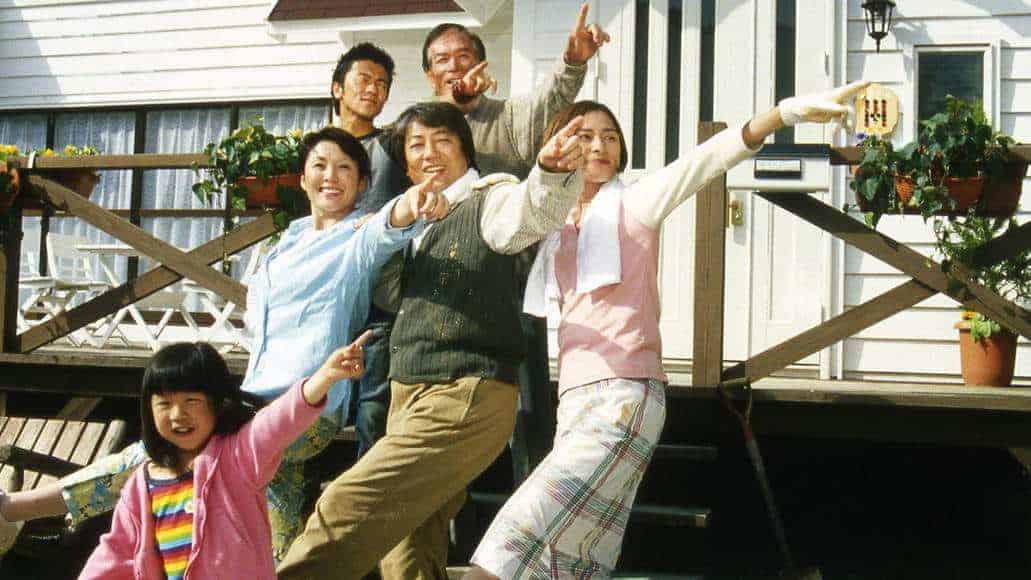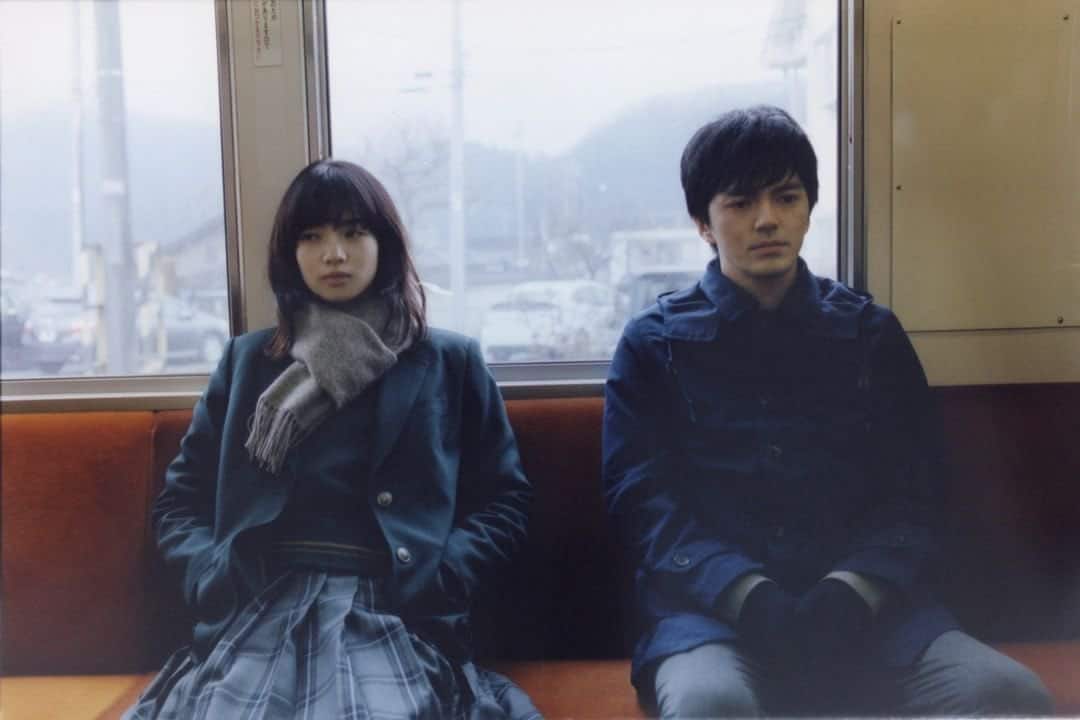Throughout the history of the genre, from literature to film, the samurai has always been a representative of a strict hierarchical social order but also a code, the bushido, which defines him, and he has to obey. While also repeatedly seen as a victim of both of these concepts, it has often been the case the samurai was regarded a hero-like figure, at times precisely because he obeyed the bushido or would not let his master down. In many ways the samurai is a reflection of Japanese society and its virtues, and also how these have changed in each decade. One of the most interesting entries because of its portrayal of this particular warrior and fighter has to be Yoji Yamada's 2002 feature “The Twilight Samurai”, a movie which has been repeatedly praised by critics and received a plethora of awards, such as 12 Japanese Academy Awards. With its story taking place during the tumultuous times of the Meji Restoration, it shows the life of a samurai who has abandoned his life as a warrior for a simpler, apolitical life, until the times catch up with him and his family.
“The Twilight Samurai” is screening at Japan Society
After the death of his wife, Iguchi Seibei (Hiroyuki Sanada), a low-ranking samurai, has been taking care of his two daughters as well as his mother, who suffers from dementia. Since the life of a warrior also brings along the risk of death and injury, he has been working in the warehouse of the clan, keeping inventory and documenting the supplies. His unwillingness to participate even in the smallest of vices or entertainments, and rejecting each invitation to join his colleagues at the local brothel or pub has earned him the nickname Tasogare (Twilight). He has been a loving and caring father for his two daughters, and admits he does not really miss the life of a samurai anymore. However, his friends and family also notice that while Seibei takes care of his loved one, he has neglected his appearance and personal hygiene, which at work causes quite an embarrassment and one of his childhood friends, Michinojo (Mitsuru Fukikoshi) urging him to think about marrying again, for example his sister Tomoe (Rie Miyazawa), who has just been divorced.
While Iguchi is hesitant and does not want any help, Tomoe helps out in his house, educating his children in seaming and calligraphy as well as dong some if the housework. Over time, Tomoe and Seibei re-connect to the friendship they had when they were little children themselves, and the former samurai even defends her from her ex-husband, who tries to get her back, with violence if necessary. With news of the duel traveling fast, especially Seibei's considerable skill with the short-sword, he becomes the perfect candidate for an important task by his clan, which means he would have to get back to his old self and risk his life.
Before we focus on the way Yamada, who also participated in writing the script, portrays the character of the samurai, we should first regard the period “The Twilight Samurai” is set in. While the term “Tasogare” is considered a way to ridicule the stern principles of Seibei, there is more to the name than its derogatory meaning. In the broader historical context of the Meji Restoration and its impact on Japanese society, politics and culture, the protagonist's character is indeed a sign of the times, a symbol of the slow disintegration of ancient ideals of status and masculinity. The authorities and the rulers, while maintaining their grip on their subjects through taxes and other policies, seem rather distant from the lives of people, as if Yamada wanted to emphasize the growing chasm between normal people like Seibei and those higher up in the social hierarchy. The gruesome find of drowned children in the river near the village where the main character's family lives, seems to highlight the image of a regime that has forgotten about its people, but nevertheless continues on its dangerous, flawed path.
Given the aforementioned function of the samurai in Japanese culture, Seibei's insistence on life and family, along with a rejection of social norms suggests a rather significant cultural shift. In many ways, he is the antithesis to characters like Zatoichi or the warriors in the period dramas of Akira Kurosawa, especially because of his emphasis on life and love. Shrugged of as being overly romantic and unsuitable for a true samurai, they add a more humanist layer to the protagonist's character, whose sorrows and worries become more relatable for a contemporary viewer. Perhaps the most interesting concept of the story is how his colleagues regard the main character's life as being unhappy and undesirable, which is quite ironic since the source of all the misery which befalls him leads right back to a system, whose rules have nothing to do with life and love in the first place.
In the light of these themes, it should come as nor surprise that Yoji Yamada's movie stresses the period and family drama, rather than features like fight choreographies, with battles and duels being distinctly rare in this story. Rather, he focuses on how his protagonist leads his life, his principles and virtues, and how his environment reacts to him, branding him an outsider, while his existence and misfortunes reflect everything that is wrong with systems like bushido.
In conclusion, “The Twilight Samurai” is a thoughtful period and family drama, a tale about the point of fighting and risking your life for authorities who do not care for you in the first place. Yoji Yamada's feature has been rightfully hailed by many as one of the masterpieces of the genre, especially because of its themes and characters as a reflection of the times and even Japanese society today


